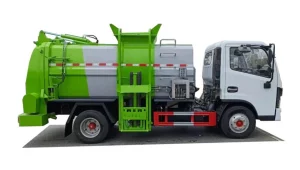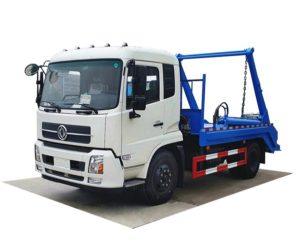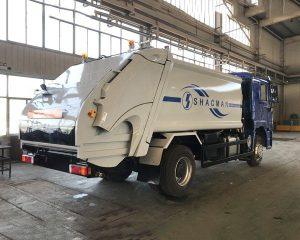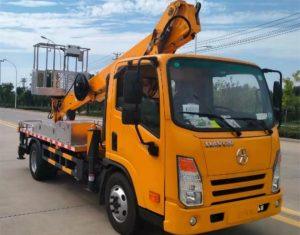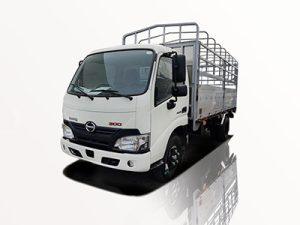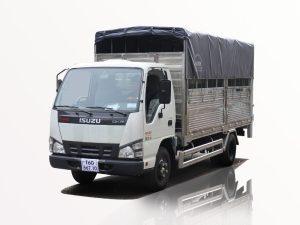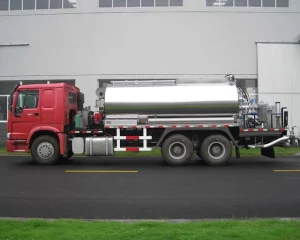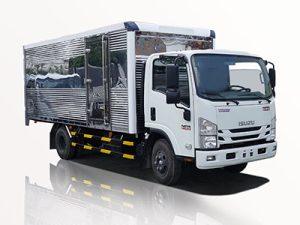Monday to Saturday - 8:00 -17:30
Everything You Need to Know About Trailers for 20ft Containers
When it comes to transporting goods efficiently, choosing the right trailer for 20ft containers is crucial. This comprehensive guide dives into the specifications, types, advantages, and best practices for selecting and using a trailer for a 20ft container. Whether you’re in logistics, shipping, or simply interested in understanding container transport, this article is designed to equip you with valuable insights.
Understanding 20ft Containers
What is a 20ft Container?
A 20ft container, often referred to as a TEU (Twenty-foot Equivalent Unit), is one of the most common shipping containers used globally. Its dimensions are generally 20 feet long, 8 feet wide, and 8.5 feet high, providing a total volume of approximately 1,170 cubic feet. These containers are typically used for transporting cargo across oceans and land.
Specifications of a 20ft Container
The standard dimensions and specifications of a 20ft container include the following:
| Specification | Measurement |
|---|---|
| Length | 20 ft (6.1 m) |
| Width | 8 ft (2.44 m) |
| Height | 8.5 ft (2.59 m) |
| Weight (Empty) | About 2,300 kg (5,071 lbs) |
| Max Payload | About 28,000 kg (61,729 lbs) |
Types of Trailers for 20ft Containers
Flatbed Trailers
Flatbed trailers are commonly used to transport 20ft containers. They have no sides or roof, making loading and unloading easy. However, securing loads properly is crucial to prevent shifting during transit.
Chassis Trailers
Chassis trailers are specially designed to carry containers. These trailers have a frame that is compatible with the base of a 20ft container, providing stability and ease during loading and unloading.
Drop Deck Trailers
Drop deck trailers feature a lower deck height, which allows for easy loading of taller cargo. This type of trailer is beneficial when transporting goods that exceed the standard height limitations.
Choosing the Right Trailer for a 20ft Container
Weight Capacity
When selecting a trailer, ensure that it can accommodate the total weight of the 20ft container and its contents. It is essential to check the weight rating of the trailer to avoid any legal issues or safety hazards.
Compatibility with Container Types
Not all trailers are suitable for all container types. Consider whether you need a standard dry cargo container, refrigerated container (REEFER), or other specialized containers when choosing a trailer.
Road and Weather Conditions
Identify the road conditions and weather patterns of the transportation route. Choose a trailer that offers good stability and safety under these conditions. For example, trailers with good anti-slip systems are preferable for wet or snowy roads.
Budget Considerations
Determine your budget for purchasing or renting a trailer. While it may be tempting to go for the cheapest option, consider the long-term reliability and maintenance costs. Quality trailers may have higher upfront costs but can save you money over time.
Best Practices for Loading and Unloading Containers
Preparation Before Loading
Ensure that the trailer is properly positioned and stable before loading. Always follow safety protocols when operating machinery for loading.
Securing the Cargo
Use appropriate straps and securing devices to prevent movement during transit. This is especially important for flatbed trailers where cargo may shift more easily.
Using Proper Equipment
Utilize forklifts, cranes, or other suitable equipment for efficiently loading and unloading the container. This minimizes the chances of accidents or mishandling.
Examples of Industries That Use 20ft Container Trailers
Manufacturing
Manufacturers often use 20ft containers to transport raw materials to their plants. Trailers designed to carry containers are essential for moving goods efficiently.
Agriculture
Farms frequently use 20ft containers for transporting harvested crops or agricultural chemicals. These containers ensure secure and efficient transport over long distances.
Retail and E-commerce
Retailers, especially those involved in e-commerce, utilize 20ft containers to ship products directly from manufacturers to distribution centers or customers.
Legal Regulations and Compliance
Transport Regulations
Ensure compliance with local, national, and international transport regulations regarding container and trailer specifications. Different regions might have varying legal requirements concerning weight, dimensions, and safety standards.
Insurance Considerations
Ensure that both the trailer and container are adequately insured during transport. Check the insurance requirements specific to the type of goods being transported.
Maintenance and Safety Tips
Regular Inspections
Conduct routine inspections and maintenance of both the trailer and container. This includes checking the brakes, tires, and securing mechanisms.
Safety Equipment
Always carry safety equipment onboard, such as reflective triangles, fire extinguishers, and first aid kits, to handle emergencies.
Cost Considerations for Trailer Rentals and Purchases
Rental vs. Purchase
Determine whether renting or purchasing a trailer is more cost-effective for your needs. If you frequently require a trailer, purchasing might be more beneficial in the long run.
Maintenance Costs
Account for ongoing maintenance costs in your budget. Regular upkeep is critical for safety and longevity, and these costs can add up over time.
Frequently Asked Questions (FAQs)
1. What is the maximum weight a 20ft container trailer can carry?
The maximum weight can vary by trailer type and manufacturer. However, a typical 20ft container has a maximum gross weight of around 28,000 kg (61,729 lbs).
2. Can I use a flatbed trailer for a 20ft container?
Yes, you can use a flatbed trailer for a 20ft container, but securing the load is essential due to the lack of sides and a roof.
3. How do I find a suitable trailer for my 20ft container?
Consider your specific needs regarding weight capacity, road conditions, and budget. Consult with trailer rental or sales companies to find a customized solution.
4. Are there special safety regulations for transporting containers?
Yes, various transport regulations govern the safe transportation of containers. Be sure to comply with local and national laws regarding load limits and securing methods.
5. What type of maintenance is required for a trailer?
Maintenance includes checking brakes, tires, lights, and securing mechanisms. Regular inspections can help prevent breakdowns and enhance safety.
6. Are there insurance options for container trailers?
Yes, various insurance options are available for container trailers. It’s important to select coverage that fits your needs based on the type of cargo and transport routes.


